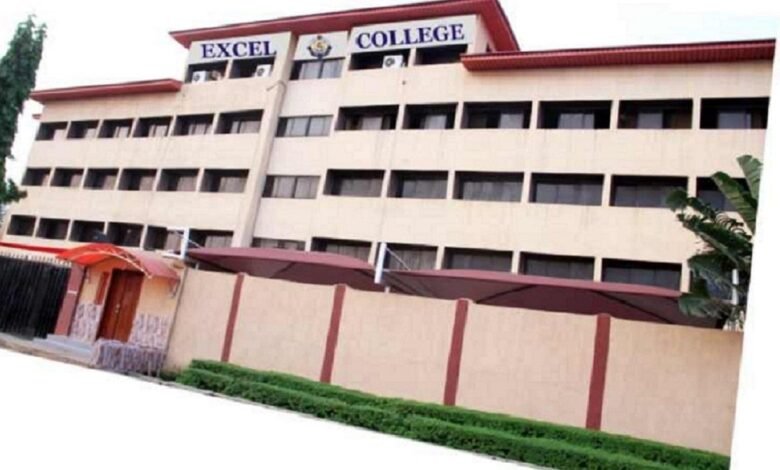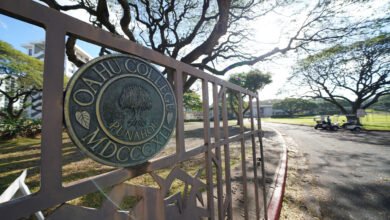Beyond the Viral Videos: Excel College’s Crisis and the Deeper Questions of Behaviour Policy, Rights, and Responsibility in Boarding Schools

When videos emerged from Excel College, Ejigbo, showing students drinking and smoking in hostel spaces, public outrage was swift. The Lagos State Government and police investigations quickly followed, and the school issued clarifications and disciplinary sanctions.
But beneath the surface of this controversy lie deeper systemic questions:
- What behavioural frameworks exist in schools to guide student conduct?
- How are these rules implemented, monitored, and enforced?
- What training do students receive on their rights and responsibilities under Nigerian law and the school’s code?
- How does a boarding school balance discipline with protection, second chances, and due process?
- Most importantly, is punishment alone enough, or should correction and rehabilitation be the ultimate goal?
1. Behaviour Policy and Code of Conduct
Every serious school must have a Behaviour Policy and Code of Conduct for Students. This is more than a list of “don’ts”; it is a charter of expectations, rights, responsibilities, and consequences. It should answer questions like:
- What does “discipline” mean in this school, obedience or self-leadership?
- What behaviours are explicitly prohibited (substance use, bullying, violence, academic dishonesty)?
- What sanctions exist and are they graduated (warnings → suspension → expulsion) or arbitrary?
- What safeguards exist against abuse of disciplinary power?
- How do restorative pathways (counselling, community service, apologies, peer mediation) fit alongside sanctions?
Without a clear, accessible policy, schools risk relying on ad hoc punishments, which may appear unfair and inconsistent. A good Code of Conduct must be published, explained at orientation, and acknowledged in writing by parents and students.
2. Implementation Mechanisms
Having a policy is only step one. The real question is: How is it lived out?
Key mechanisms include:
- Visible communication: rules posted in hostels, classrooms, and digital platforms.
- Supervision systems: documented staff rosters for hostel walk-rounds, surprise checks, CCTV in communal areas.
- Incident reporting channels: anonymous reporting boxes, digital hotlines, designated safeguarding officers.
- Disciplinary registers: every case logged, with details of action taken, creating accountability.
- Parental engagement: structured meetings and written undertakings when misconduct occurs.
- Oversight: PTA subcommittees or independent boards to review school discipline.
Excel College mentioned structural reforms (relocating reading rooms, increasing staff monitoring), but questions remain:
- Were these measures already in the policy or created only after the scandal?
- Are sanctions consistently applied, or dependent on who is involved?
Is there transparency so students trust the system?
3. Training Students on Rights and Responsibilities
Discipline cannot thrive in ignorance. Students must know their rights and responsibilities not as abstract ideals, but as lived realities.
What students should be taught:
- Rights under Nigerian law: right to education, right to be heard in disciplinary proceedings, right to safety and dignity.
- Responsibilities: respecting rules, avoiding harmful substances, treating peers and staff with respect, reporting unsafe conduct.
- Consequences of misconduct: academic penalties, legal implications, long-term reputation damage.
- Life skills: handling peer pressure, resisting substance abuse, making responsible digital choices.
- Safeguarding training: who to talk to if unsafe, confidential channels, and assurance of protection from retaliation.
This training should not be a one-off lecture but a structured program repeated termly, with participation certificates or acknowledgements signed by students.
4. Boarding Schools as Primary Parents
In a boarding environment, staff act as Primary parents. This carries weighty obligations:
- 24/7 responsibility: safeguarding and supervision are not limited to classroom hours.
- Holistic care: discipline must be balanced with nurture, guidance, and mentoring.
- Moral authority: housemasters and counsellors must model integrity, not merely enforce rules.
- Duty of care: lapses (like unsupervised smoking) are not just student misconduct, they expose failures in adult responsibility.
Thus, the issue is not only “what did the students do?” but also “what did the supervising adults fail to prevent or detect?”
5. Investigatory Procedures
The credibility of any disciplinary outcome depends on how investigations are conducted.
Best practice includes:
- Immediate safety and fact-finding: secure evidence, separate involved students, notify parents.
- Panel hearings: at least three members (school leader, safeguarding lead, independent PTA or board rep).
- Student representation: students should attend with a parent or trusted adult; their voices must be heard.
- Written records: charge sheets, minutes, evidence logs.
- Decision letters: reasons for sanctions explained in writing.
- Appeals process: students/parents must have a clear path to appeal, with an independent reviewer.
In the Excel case, it is unclear if a panel was convened, whether students had representation, or if they had the option to appeal. Transparency here is vital. Without it, discipline risks becoming arbitrary and retributive.
6. Second Chances: Restoration Over Retribution
Expulsion may feel decisive, but closing doors entirely is rarely educationally sound. Young people make mistakes, and schools must balance accountability with rehabilitation.
Restorative approaches:
- Conditional reinstatement: students return under strict contracts.
- Counselling & mentorship: targeted sessions addressing peer pressure and responsibility.
- Community service: within the school community to repair harm done.
- Graduated consequences: limiting privileges before imposing permanent exclusion.
Excel College did allow students to sit NECO exams after remorse and parental undertakings. This aligns with the principle of educational continuity. But broader restorative frameworks are still needed so discipline is not seen as mere punishment, but as an opportunity to learn and grow.
7. Bigger Lessons for Nigerian Schools
This incident is not just about Excel College. It is a wake-up call for all boarding schools in Nigeria:
- Publish clear, rights-based Behaviour Policies.
- Train students annually on rights, responsibilities, and discipline.
- Formalise transparent investigatory and appeal mechanisms.
- Hold staff accountable under in loco parentis obligations.
- Shift from retribution to restorative discipline, safeguarding education while correcting misconduct.
Conclusion
The Excel College scandal began with two viral videos, but its significance runs deeper. It forces us to ask: do schools in Nigeria have the systems, safeguards, and culture to balance discipline, protection, and student rights?
Discipline without policy is arbitrary. Discipline without transparency is injustice. Discipline without restoration is wasted pain. If Nigerian schools want to produce not just scholars but responsible citizens, then behavioural codes, investigative fairness, and rehabilitative discipline must move from being afterthoughts to becoming the core of school life.





